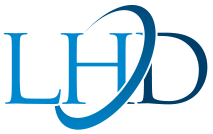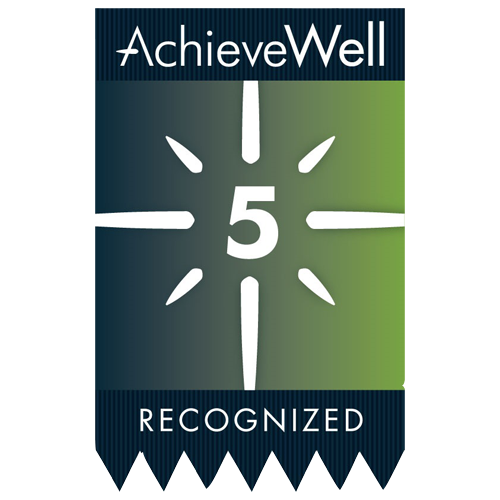Goals for Open Enrollment
Employees should…
- Understand the benefits available to them well enough to make an informed decision regarding their elections
- Be given all information/notices that they are required by law to receive
- Be able to easily elect the benefits that they want
Employees’ elections should be double-checked to make sure they are valid.
- Employees’ benefits elections should be audited by the employer/a service provider to find mistakes or problems
- Benefits elections should be transmitted to vendors with enough time for vendors to implement the elections for the coming year. Employers should audit service providers’ information to ensure that what the employer sent matches what the service provider processed.
Timing
Elections must be made prior to the start of the plan year. Generally, elections must be made on a 12-mmonth cycle. Generally, open enrollment is broken down into three stages
- Pre-open enrollment period: Preparation period for open enrollment. Employer will want to coordinate with vendors, ensure that components of the open enrollment system (software, forms, etc.) work, and inform employees of what benefits are available and how to enroll. This stage may span months.
- Open enrollment period: Period where employees are making their elections. Usually spans between 2 and 4 weeks and is done early enough that vendors will be able to implement participants’ elections before the start of the plan year.
- Post-open enrollment period: Period after employees have made their elections. At this stage, the plan should be auditing employees’ responses, auditing service providers’ implementation of those responses, and ensuring that employees receive necessary post-open enrollment communications.
Voluntary Communications – Form
There are few explicit requirements for voluntary communications, which means employers have broad discretion with how to handle them. However, setting up an effective scheme to disseminate information to employees is important, as not doing so can lead to confusion, mistakes, ill will, and litigation.
Communication about the plan is considered a fiduciary act. When communicating, employers should be very careful to make sure that nothing they say is inaccurate, as inaccurate communications can lead to fiduciary liability.
An optimal communication strategy for employees will look different for different employees. Depending on the size and complexity of the company, communication strategies may range from relatively simple to very complex. Employers with more complex requirements should consider using a consultant or service provider specializing in open enrollment.
For open enrollment, there are many communication strategies, some of which are:
- Written enrollment materials
- Online video/PowerPoint presentations
- In-person presentations
- Benefits fair (in-person or virtual)
Voluntary Communications – Contents
The enrollment materials provided by the employer should be seen as an opportunity to educate employees on their benefits. This is a balancing act between telling employees what they need to know without drowning employees in information.
Important things to include:
- Basic enrollment requirements
- What benefits are available to whom
- Features, requirements, and drawbacks of each benefit
- Irrevocability of elections (where applicable)
- Use-or-lose rule, carryover, and grace period rules (where applicable)
- Potential impact of salary reductions
Post-open enrollment communications: Employees who opt in to certain benefits (e.g., an HSA) may need to watch out for certain materials being shipped to them (e.g., debit card for HSA). Plans should make post-election communications to ensure that employees are aware of all important information concerning their benefits. Once the employer knows what benefits the employee has elected, the employer should furnish them with the required notices.
Required Disclosures – In General
Some disclosures must be furnished to employees. These disclosures may need to be furnished before or after open enrollment, depending on the disclosure. These may change depending on the benefits offered and the people enrolled in the plan. Some disclosures technically do not need to be given to everyone but should always be included due to the risk of missing the disclosure and the consequences of not making the disclosure.
Example – CHIP notice: Only required to be given to people in certain states, but as a general practice, it should be given to all employees.
Required Disclosures – Fiduciary Duty
- Required disclosures: fiduciaries must provide participants with all disclosures that are required by law.
- Amendment disclosures: most courts require fiduciaries to disclose amendments under serious consideration if an employee inquires about potential amendments to the plan.
- Duty not to misinform: fiduciaries are required to speak the truth. If fiduciaries give misleading statements, people negatively affected by those statements can sue the fiduciary.
- Disclosure upon request: Employer can be held liable for misleading/inaccurate information that it gives when an employee asks a question about how the plan works.
- Duty to inform when silence might be harmful: Some courts require ERISA fiduciaries to disclose information when not doing so might damage the participant.
- Duty to provide guidance: some courts have required fiduciaries to provide individualized guidance upon participants’ request.
Section 125 Elections
Section 125 elections are elections to forgo taxable income in exchange for benefits that can be offered under a cafeteria plan. They are made for a specific period of coverage, which is usually the plan year, although it does not have to be. Elections must be made before payments/salary deductions occur.
Elections thus must happen before the start of the plan year and are generally irrevocable for the plan year/period of coverage once they are made. HSA elections are exempted from this irrevocability rule, even if they are part of a cafeteria plan and must be allowed at least monthly.
Exceptions apply to this rule. However, these exceptions are not mandatory. Plans are free to disallow some or most
midyear election changes. Employers are required to allow some midyear election changes.
Section 125 Elections – Types
- Affirmative: Every year, employee receives only the benefits that they elect to receive. Most common type of elections plans utilize.
- Default/Automatic Enrollment: Employees will be automatically enrolled unless they opt out of coverage
- Rolling/Evergreen: Employee makes an election that continues until the employee makes a different election
Section 125 Revocability – Allowable Changes
Employers are allowed to permit certain changes in elections in response to certain events occurring…
- Change in status: Occurrence of a number of different “life events,” including marriage, birth, adoption of a child, or change in employment status
- Cost or coverage changes: If a change to a component benefit plan takes effect midyear or an employer adds a new plan midyear
- Changes to 401(k) elections
- Other laws/court orders
Some laws add additional requirements or caveats to when employers can or must offer employees the chance to change an election. These include FMLA, HIPAA, COBRA and certain court orders.
Section 125 Revocability – Consistency
Change-in-status requirements require not only that a certain type of change occurred, but that the change in elections is consistent with the change in status. General consistency rule – Change in status requires a gain or loss in coverage that affects eligibility for either a component plan or the cafeteria plan itself. Consistency requires that the change in elections correspond to these gains or losses.
Four “special consistency rules”
- Relaxed consistency rule for group term life insurance, dismemberment, and disability coverage
- Expenses eligible for tax exclusions under a DCAP or adoption assistance program are affected by a change-in-status event
- Limitation of election changes that can be made upon divorce, annulment, death of spouse or dependent, or a dependent no longer being eligible for coverage
- Limitation on election changes to cease or decrease coverage due to a gain in eligibility under a family member’s plan
Section 125 Revocability – Mistake
Employers should have some amount of cushion time between when elections are made and when the plan year begins to allow for mistakes to be corrected. Revocation due to mistake after the plan year has begun is not technically allowed under § 125, but informal comments from IRS officials indicate that elections can be corrected when a clear and convincing mistake has been made. Employer mistakes: IRS officials have consistently said that administrative or clerical mistakes can be undone if there is clear and convincing evidence that the employer made the mistake.
Two Approaches
- Impossibility approach: employee revocation due to mistake is allowed only if it is impossible that the employee could have benefited from the election. This is the safer approach.
- Facts-and-circumstances approach: plan administrator can reasonably ascertain based on facts and circumstances that a mistake has occurred.
- Employee will need to have payroll corrected as a result of the mistake.
Use-or-Lose Issues
Most cafeteria plan benefits are subject to the use-or-lose rule where any benefit that is not used by the end of the election period is lost. This means FSA and DCAP benefits must be paid out by the end of the year. HSAs are not subject to this rule
FSAs have limited exemptions to this rule…
- Carryovers
- Grace periods
- Note – Grace periods and run-out periods are not the same thing
- A plan may allow either a carryover or a grace period, but not both
Because run-outs are not technically an exception to the use-or-lose rule, plans are always allowed to include them, regardless of whether they allow for a grace period or a carryover.
Use-or-Lose Issues – FSA & HSA
General-purpose FSA carryovers and grace periods affect HSA eligibility. For any given plan year, if a participant elected to carry over FSA contributions from the previous year, that participant cannot make HSA contributions for that year. A participant covered under a grace period is generally eligible for an HSA upon expiration of the grace period.
Employers should be mindful of these rules when determining whether an employee can contribute to an HSA. Employees considering having an HSA should also be made aware of these rules so they don’t make carryover elections that end up preventing them from being able to make HSA contributions.
Post-Election Nondiscrimination Testing
Section 125 Nondiscrimination – Cafeteria plans cannot discriminate in favor of highly compensated employees (HCEs) and key employees. There are two problems with nondiscrimination testing to address after the conclusion of open enrollment.
- HCEs and key employees are not identified at the beginning of the plan year.
- A nondiscriminatory plan can become discriminatory as a result of election changes.
Problem in the context of open enrollment is that a plan can violate nondiscrimination testing based on the aggregate elections of employees, even if the plan document is compliant. As a result, the plan should review pay and elections carefully to ensure compliance.
At the beginning of the year, the plan administrator should compile a list of likely HCEs and key employees and do preliminary testing to see if the plan is likely out of compliance or could easily become out of compliance. Administrators are allowed to reduce HCE/key employee benefits to prevent nondiscrimination violations if authorized to do so by the plan document.
Non-Active/Absent Employees – COBRA, FMLA, and USERRA
- COBRA: Open enrollment must be available for COBRA beneficiaries whenever it is available for similarly
situated active employees. Benefits available to similarly situated active employees must be available to COBRA beneficiaries. - FMLA: Employees on FMLA-covered leave must be treated the same as similarly situated employees (same enrollment materials, same opportunity to enroll, etc.) Employees are allowed to revoke health benefit elections to the same extent as employees going on non-FMLA leave (unpaid leave is a change-in-status event) Employee must be allowed to reenter the plan with the same salary reduction and elections as were in place before the leave, regardless of whether there has been a change-in-status event.
- USERRA: USERRA gives employees the right to continue coverage under an employer’s group health plan for up to 24 months while the employee is away on military duty. Employees on USERRA-covered leave will be entitled to participate in open enrollment if the plan is covered by COBRA. It is unclear whether this is the case for plans not covered by COBRA.
Penalties
- ERISA lawsuits: Participants are allowed to sue fiduciaries for a variety of breaches or failures under the plan to recover benefits or damages. These lawsuits can be extremely expensive. ERISA enforcement mechanisms can be used to enforce other laws as well, such as NMHPA or MHPAEA.
- Nondiscrimination testing: If a plan violates nondiscrimination rules, prohibited group members (HCEs and key employees) will lose the tax advantages of the cafeteria plan. This will subject them to income tax on their benefits, which can be a huge tax penalty.
- COBRA penalties: Violations of COBRA can lead to excise taxes and participant lawsuits.
Failure to provide notices can result in adverse actions and penalties from various groups, including participants, DOL, IRS, or EEOC. Notice failures may lead to other consequences as well. Many other laws have their own enforcement mechanisms that will lead to penalties.





